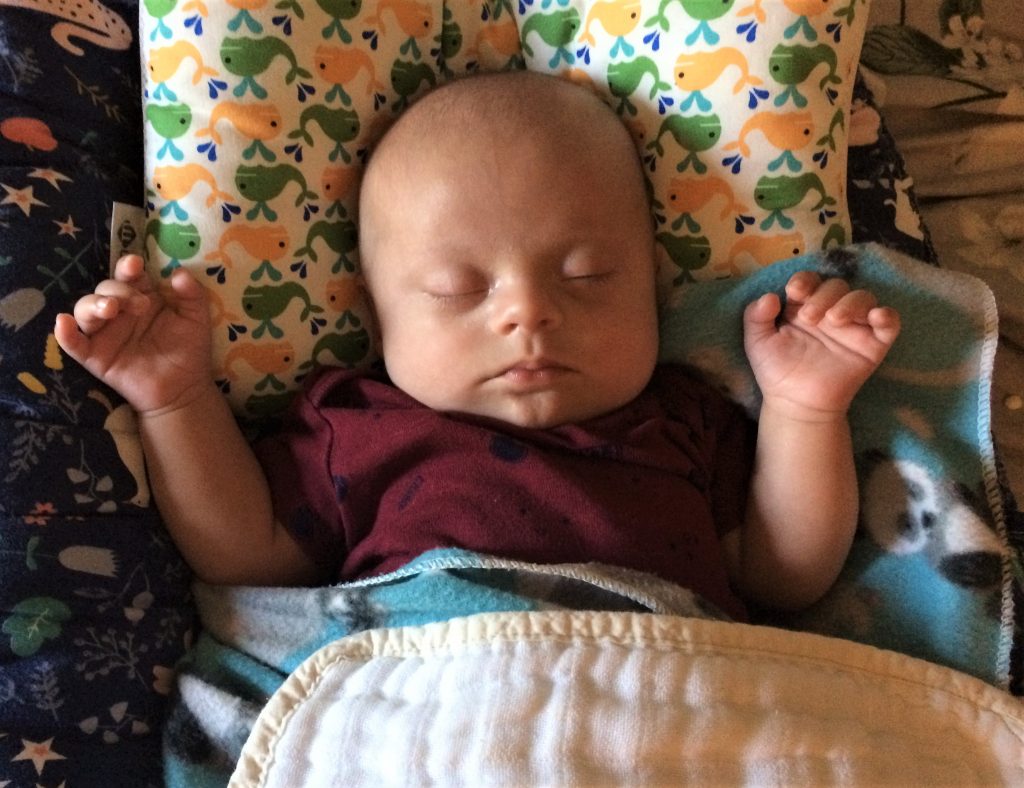For some curious and mostly unexpected reason, I had quite a lot of money left over, coming down to the end of the month, and the Daughter Unit was feeling a considerable touch of cabin fever. For the last two months, she has been dedicated to tending Wee Jamie, the Grandson Unit, and studying for her Texas real estate agent’s license. This program was interspersed occasionally with trips to the grocery store, or maybe in a moment of daring, to Lowe’s for gardening and household maintenance stuff. On seeing that we could swing a brief road trip, we made a spur of the moment decision to hit Granzin’s in New Braunfels, and then to go eat a meal that we hadn’t prepared ourselves – to Blacks’ BBQ. We have rather missed the Red Hat ladies association that we belonged to for better than a decade; we met once a month for a lunch at a local mid-priced eatery; alas, four long-time members dropped out or moved away, another three died or developed serious health issues, and finally the last and youngest member besides the Daughter Unit moved with her husband to the Caribbean upon his retirement.
So, we fed Wee Jamie in mid-morning, and set out as soon as he was burped, calculating that we could be to New Braunfels and back before he would need his mid-afternoon feeding. I had it mind to check out the JoAnn store there (which is much nicer and more fully stocked than the San Antonio outlet, don’t ask me why) for suitable cotton fabric for another 19th century costume comfortable for summer wear, but the fabrics that would have worked for the vision that I had in mind were not on sale, and prices for fabrics have sky-rocketed to the point that I just cannot countenance paying them, not when I need them for a costume that requires at least eight yards of 60” fabric, plus all the extra notions like buttons, lining, thread, trim, et cetera. Eh – I found everything I wanted and could afford through an on-line outlet later in the day. Really, I wish now that I had pigged out even more than I did on fabric when Hancock Fabrics was having their closing sales.
On to Granzins’ which was jammed on a Saturday, but fully fitted with employees attentively manning the counter that stretches the whole length of the store. There are a couple of sections – the frozen sausage and Cajun specialities, which are on more of a help-yourself basis, the fresh/smoked sausage and bacon section, the deli and dried jerky and cheese, then the beef, the pork, and the seafood and chicken. On a weekend, or heading into a holiday, Granzin’s is packed with customers buying for a weekend at Canyon Lake or stocking up for a Saturday or Sunday backyard barbeque. The prices are good – almost better than HEB, and the quality is fantastic. Only a few items are pre-packaged. Basically, you can pick out the steak, or the roast, or the whole fryer chicken you prefer. And I don’t know where they get the chicken breasts – they must come off meat chickens almost the size of small turkeys. We’ve made two meals, sometimes, from one of the bigger half-breasts. They also stock a lot of local products – butter, honey, pickled vegetables, nuts, and seasonings. (Granzin’s in New Braunfels is behind Bluebonnet Ford, on a little side street called the Old McQueeney Road, which – if you are not looking sharpish for it along the access road to IH-35 – can easily be missed.)
Loaded up with various protein meats, intended to be parted out, sealed with the vacuum sealer, and stashed away in the freezer for the coming month. It’s been a couple of months since visiting Granzin’s, so we were a little low. The fresh garlic sausage, BTW is awesome, when sprinkled with a little olive oil and some Adams Reserve Texas Steakhouse Rub spice and baked. Our next-door neighbor still raves about the fresh garlic sausage that she brought back and baked for her family.
Black’s BBQ has the advantage of being one of four locations, branching off from the original location in Lockhart. Prior to a book event in Lockhart ages ago, we sampled the Kreuz Market, which was OK, as far as BBQ went, but nothing really special to our mind, in spite of all the hype. All the locals that we mentioned this to afterwards said that we should have gone to Black’s. Well, at last we made it, and the sausage and brisket was pretty darned good, although we still mourn the loss of the Riverside Meat Market in Boerne, which (cunningly disguised as a gas station on the corner of Main Street and River Road) produced the most awesomely good rotisserie chicken and BBQ beef brisket. (That space is an empty and grass-grown lot, now. Guess the Riverside was just too down-market for the upscale yuppie population in Boerne. I’d love to know the inside story, but I’ll bet it’s too depressing for words. The Riverside Market pit and BBQ doesn’t seem to have been replaced locally.) Black’s in New Braunfels has the advantage of a nice location, a roomy building designed in in the architectural style of Texas vernacular, which involves lots of rough stained beams, concrete floors and walls of galvanized tin panels, and a welcoming parking lot, which seemed to be mostly filled on a Saturday at lunchtime. The inside was cavernous and generously fitted out with heavy picnic tables and benches, which allowed diners to socially-distance as they chowed down. Wee Jamie slept happily through all of this, for which we were extremely grateful. He didn’t wake up and demand a bottle until well after we returned home.


Recent Comments